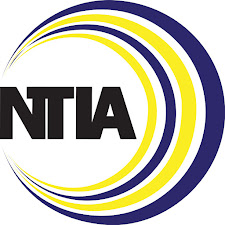In my ongoing series of essays, "Thinking Clearly About Speaking Freely," now numbering nineteen, I've talked a lot about the need to recreate a Constitutional Culture as a way of combatting today's Cancel Culture. For example, in the very last essay, I ended by declaring, "more than ever, Americans need to rekindle an appreciation of our Constitutional Culture, of which free speech has always been an integral part."
In that vein, I commend to you a wonderful essay - "The Gentle Art of Disagreeing " - published today in RealClear Politics.
In it, Richard Porter, a Republican and Christian, relates his long-standing friendship with Stephen, a Democrat and Jew. They both had Ivy League backgrounds and both were lawyers. But their politics and philosophical perspectives could not have been more different. Stephen passed away last month, and Mr. Porter doesn't reveal his last name.
As Mr. Porter says, they frequently debated vigorously, and then, proverbially, would just "agreed to disagree."
The essay is touching and instructive. What most interested me is the way that Mr. Porter casts his friendship with Stephen, and their ability to disagree agreeably, in the light of our nation's Constitutional Culture about which I have been writing.
Here are a few brief excerpts:
I embraced my admiration of him, instead of dwelling on our differences. We treated each other as we would each wish to be treated ourselves. We treated each other with the same brotherly love upon which the nation we love was founded.
Jefferson wrote the Declaration of Independence in the city of brotherly love: Philadelphia. Philos, the root of Philadelphia, is one of several Greek words for love. And Jefferson slyly built love into the Declaration.
"We hold these truths to be self-evident, that all men are created equal, that they are endowed by their Creator with certain unalienable Rights, that among these are Life, Liberty and the pursuit of Happiness."
And then, this in closing:
And loving our neighbor is the premise upon which our Creator endowed us with unalienable rights, including liberty – because loving others as ourselves governs and empowers the exercise of liberty.
Our nation was the first and is still the only nation founded on the premise of the equalizing power of brotherly love. Brotherly love informs the structure of our Republic and is amplified in the Bill of Rights – such as the First Amendment rights to free speech and religion.
As hard as it may be in the face of deeply-held divisions and disagreements about politics and philosophical perspectives, "The Gentle Art of Disagreeing" is certainly worth reading. And thinking about. Now more than ever.
















